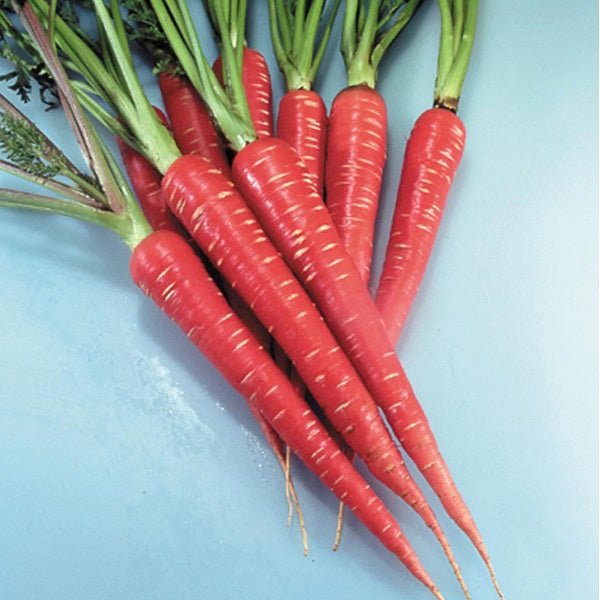
Set of 10 Best Vegetable Seeds for Kitchen Garden
(MRP Inclusive of all taxes)
- Shipping ₹79 for entire order
- Dispatch in 7 days
- Country of origin: India

(MRP Inclusive of all taxes)
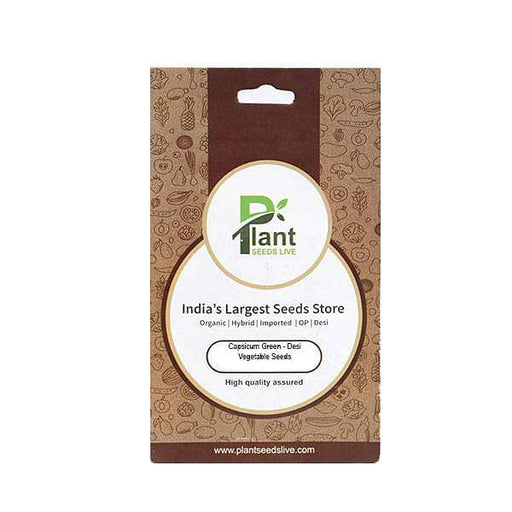
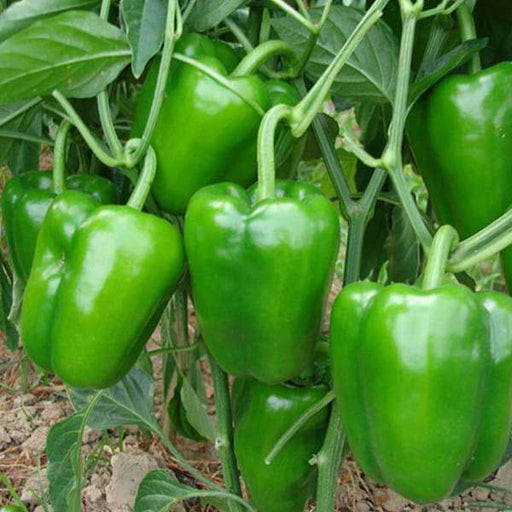 Sold out
Sold out
Capsicum Green - Desi Vegetable Seeds Capsicum Green, also known as bell pepper, is a vibrant and nutritious addition to your garden. Thes...
View full details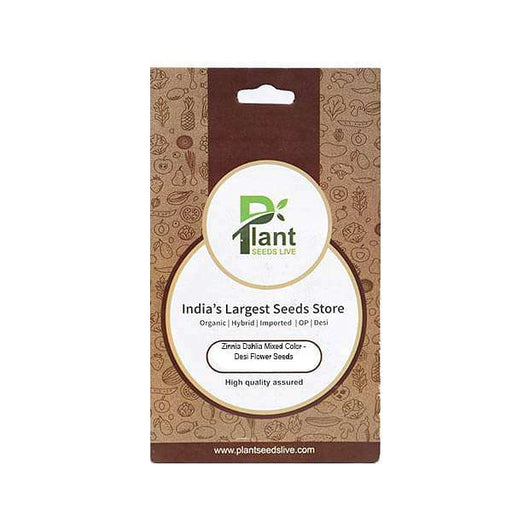
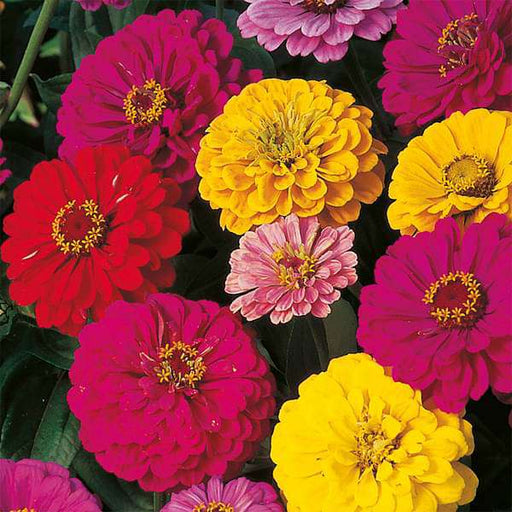 Sold out
Sold out
Zinnia Dahlia Mixed Color - Desi Flower Seeds Transform your garden into a vibrant tapestry of colors with our Zinnia Dahlia Mixed Color -...
View full details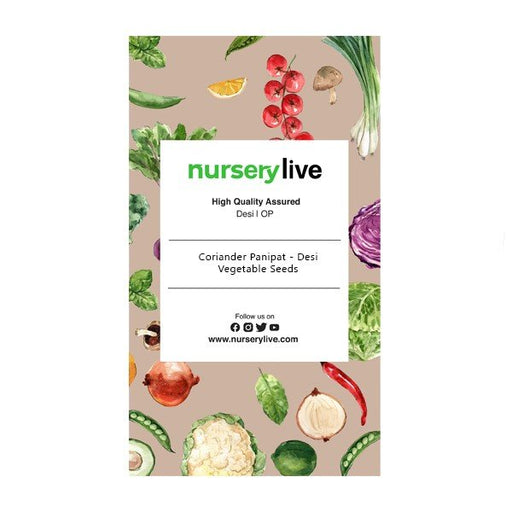
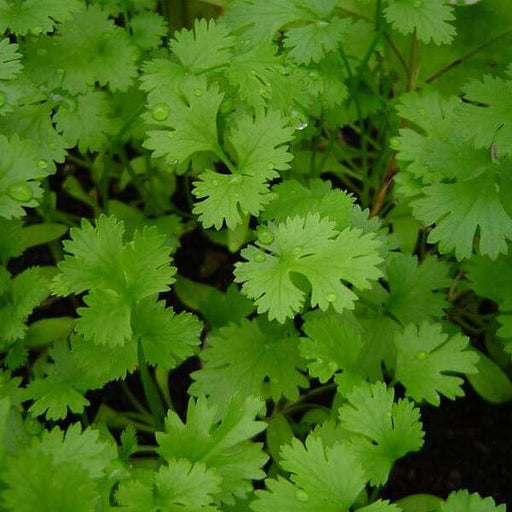 Save 25%
Save 25%
Coriander Panipat - Desi Vegetable Seeds Coriander Panipat is a premium variety of coriander seeds, cherished for its aromatic leaves and ...
View full details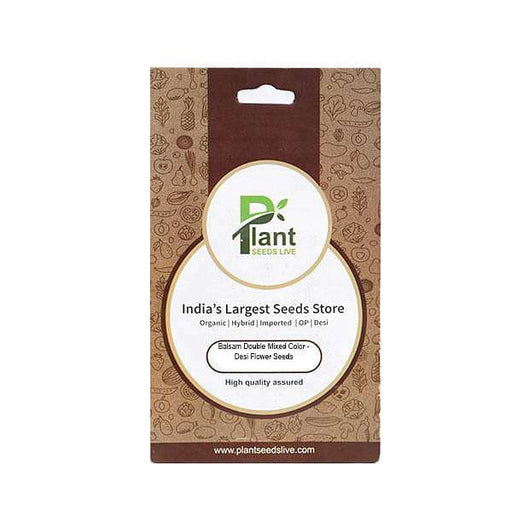
 Save 25%
Save 25%
Balsam Double Mixed Color - Desi Flower Seeds Discover the vibrant beauty of Balsam Double Mixed Color - Desi Flower Seeds, a delightful a...
View full details
 Sold out
Sold out
Cherry Tomato, Cherry Tomato Honey - Vegetable Seeds Discover the delightful world of Cherry Tomato Honey seeds, perfect for home gardener...
View full details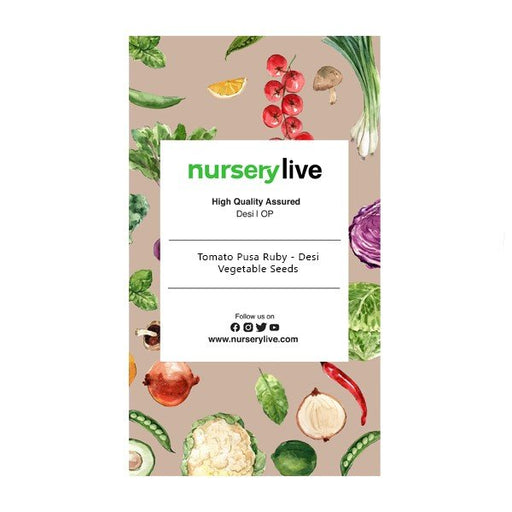
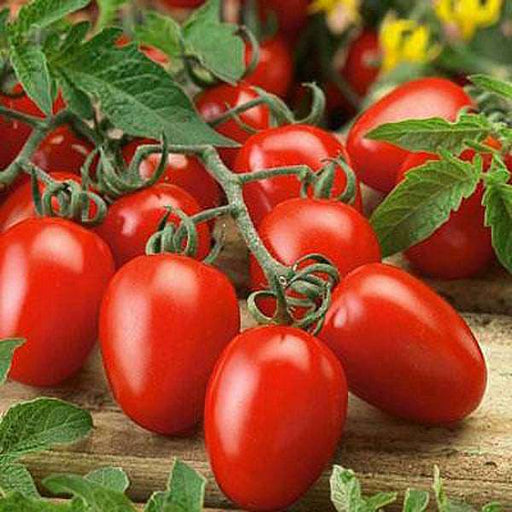 Sold out
Sold out
Tomato Pusa Ruby - Desi Vegetable Seeds The Tomato Pusa Ruby is a premium variety of tomato seeds, renowned for its vibrant red color, jui...
View full details
 Save 25%
Save 25%
Spinach All Green - Desi Vegetable Seeds Introducing the Spinach All Green - Desi Vegetable Seeds, a premium variety of spinach that thriv...
View full details
 Sold out
Sold out
Capsicum Green - Desi Vegetable Seeds Capsicum Green, also known as bell pepper, is a vibrant and nutritious addition to your garden. Thes...
View full details
 Save 25%
Save 25%
Coriander Panipat - Desi Vegetable Seeds Coriander Panipat is a premium variety of coriander seeds, cherished for its aromatic leaves and ...
View full details
 Sold out
Sold out
Cherry Tomato, Cherry Tomato Honey - Vegetable Seeds Discover the delightful world of Cherry Tomato Honey seeds, perfect for home gardener...
View full details
 Sold out
Sold out
Tomato Pusa Ruby - Desi Vegetable Seeds The Tomato Pusa Ruby is a premium variety of tomato seeds, renowned for its vibrant red color, jui...
View full details
 Save 25%
Save 25%
Spinach All Green - Desi Vegetable Seeds Introducing the Spinach All Green - Desi Vegetable Seeds, a premium variety of spinach that thriv...
View full details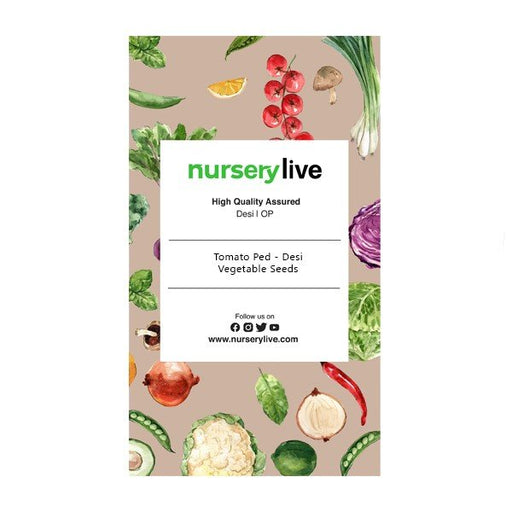
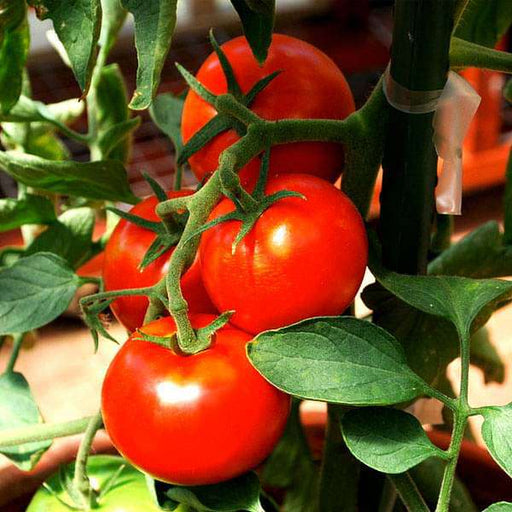 Save 25%
Save 25%
Tomato Ped - Desi Vegetable Seeds Introducing the Tomato Ped - Desi Vegetable Seeds, a premium selection of heirloom tomato seeds that pro...
View full details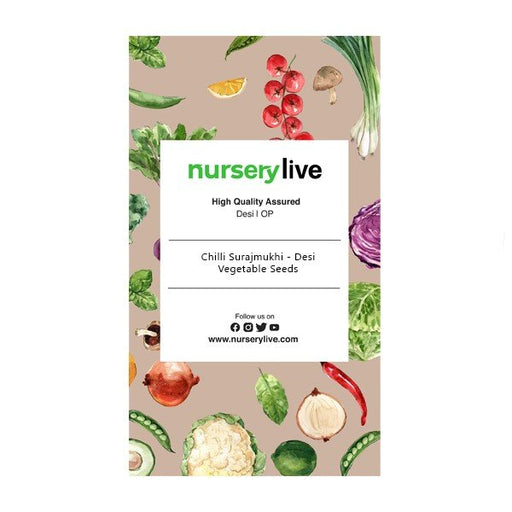
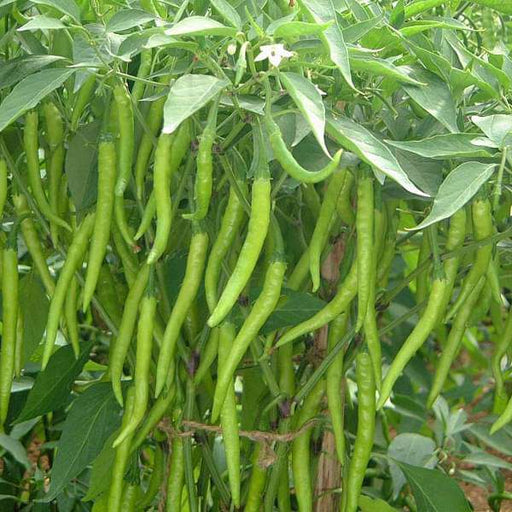 Save 25%
Save 25%
Chilli Surajmukhi - Desi Vegetable Seeds Introducing the Chilli Surajmukhi, a unique variety of desi vegetable seeds that brings a burst o...
View full details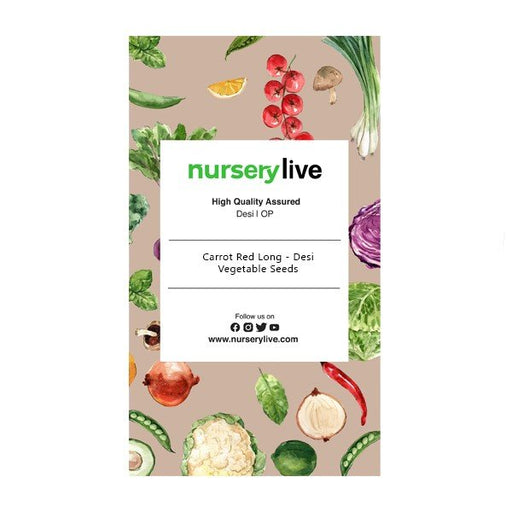
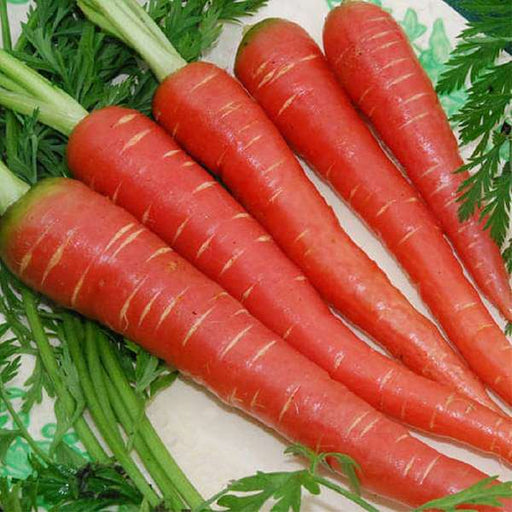 Save 25%
Save 25%
Carrot Red Long - Desi Vegetable Seeds Introducing the Carrot Red Long - Desi Vegetable Seeds, a premium variety known for its vibrant col...
View full details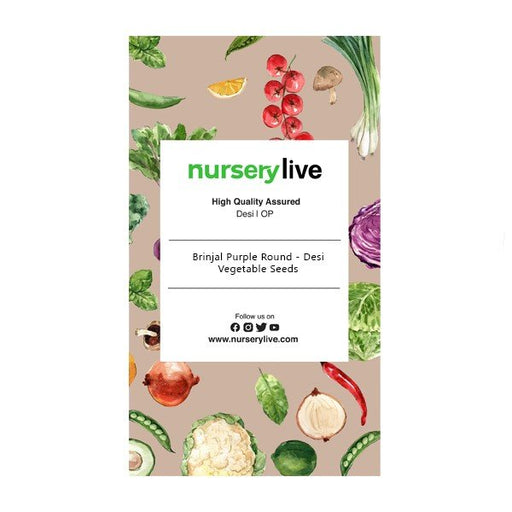
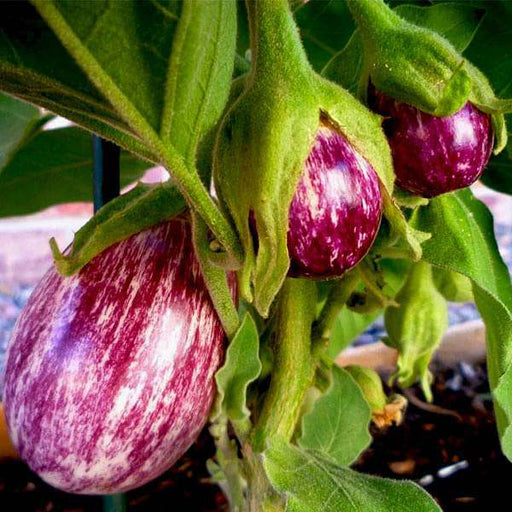 Save 25%
Save 25%
Brinjal Purple Round - Desi Vegetable Seeds Discover the rich flavors and vibrant colors of Brinjal Purple Round, a staple in Indian cuisi...
View full details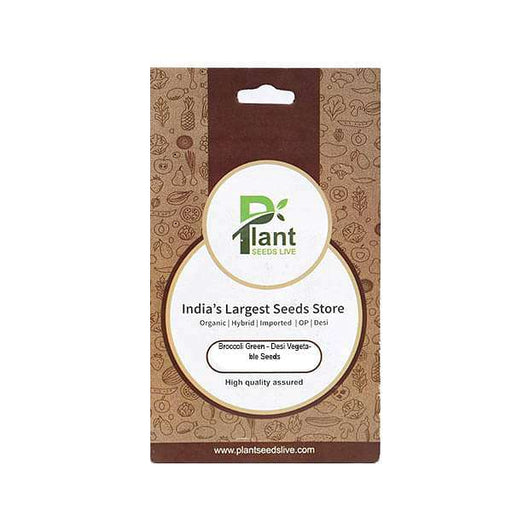
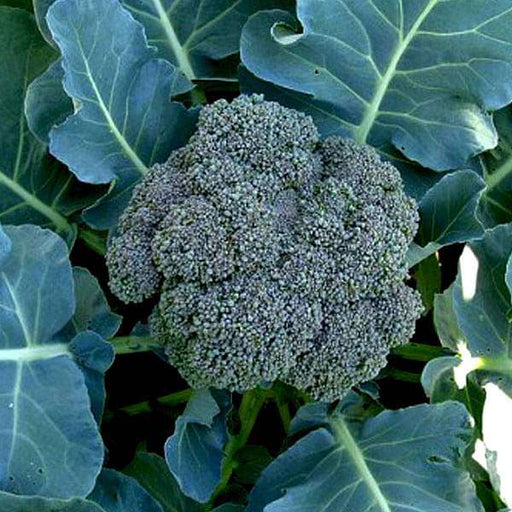 Save 25%
Save 25%
Broccoli Green - Desi Vegetable Seeds Discover the vibrant world of Broccoli Green with our premium Desi Vegetable Seeds. Known for its ri...
View full details
 Save 35%
Save 35%
Best 6 Plants for Perfect Indoor Garden Transform your living space into a lush oasis with our curated collection of the Best 6 Plants for a...
View full details
 Save up to 50%
Save up to 50%
Mini Succulent Garden Pack Transform your space with our Mini Succulent Garden Pack, featuring a delightful collection of 4 any variety beautiful s...
View full details
 Save 30%
Save 30%
5 Best Fragrant Plants Transform your garden or indoor space into a fragrant paradise with our curated selection of the 5 Best Fragrant Plants. Th...
View full details
 Save 24%
Save 24%
Set of 2 Bonsai Looking Grafted Adeniums Transform your indoor or outdoor space with our exquisite Set of 2 Bonsai Looking Grafted Adenium...
View full details Save 45%
Save 45%
Top 4 Die Hard Succulents Pack Transform your indoor or outdoor space with our Top 4 Die Hard Succulents Pack, featuring a curated selecti...
View full details
 Save 30%
Save 30%
5 Best Indoor Plants Pack Transform your living space into a lush oasis with our '5 Best Indoor Plants Pack.' This carefully curated collection fe...
View full details
 Save 25%
Save 25%
Set of 4 Evergreen Air Purifier Plant Pack Transform your indoor space into a lush, green oasis with our Set of 4 Evergreen Air Purifier Pla...
View full details| SrNo | Item Name |
|---|---|
| 1 | Set of 10 Best Vegetable Seeds for Kitchen Garden |
Transform your kitchen garden into a thriving oasis with our Set of 10 Best Vegetable Seeds. Carefully curated for both novice and experienced gardeners, this collection includes a variety of nutrient-rich vegetables that are perfect for home cooking. Enjoy the satisfaction of growing your own fresh produce right at your doorstep, enhancing your meals with flavors that store-bought vegetables simply can't match.
What makes this set special is its diversity and ease of growth. Each seed variety is selected for its high yield and resilience, ensuring that you can enjoy a bountiful harvest throughout the growing season. Whether you have a spacious backyard or a small balcony, these seeds are ideal for any kitchen garden setup.
Scientific studies show that growing your own food can significantly reduce your carbon footprint, as it eliminates the need for transportation and packaging. Historically, kitchen gardens have been a staple in households for centuries, providing families with fresh produce and a sustainable food source. Start your journey towards a greener lifestyle with our Set of 10 Best Vegetable Seeds for Kitchen Garden today!
When it comes to your kitchen garden, the best vegetable seeds are like the VIPs of the plant world. They’re the ones that promise a bountiful harvest and make your neighbors green with envy. Think of them as the all-stars of your garden party, ready to shine and provide you with fresh produce that’s not just tasty but also packed with nutrients. Choosing the right seeds can turn your garden into a culinary wonderland, so don’t settle for anything less than the crème de la crème!
Every kitchen garden needs its essentials, and we’re not talking about fancy tools or expensive gadgets. We’re talking about the must-have seeds that will transform your backyard into a mini Eden. These essentials are the backbone of your garden, ensuring you have everything from tomatoes to herbs at your fingertips. With the right mix, you’ll be whipping up gourmet meals in no time, impressing your family and friends with your green thumb and culinary prowess.
Heirloom vegetable seeds are like the vintage wine of the gardening world—rich in flavor and steeped in history. These seeds have been passed down through generations, carrying with them the stories of our ancestors. Planting heirloom varieties not only adds a unique twist to your kitchen garden but also helps preserve biodiversity. Plus, who wouldn’t want to brag about growing a tomato that’s been around since the 1800s? It’s like having a piece of history right on your plate!
If patience isn’t your virtue, then fast-growing vegetables are your best friends. These speedy little guys will have you harvesting in no time, making them perfect for those who can’t wait to taste the fruits (or veggies) of their labor. From radishes to lettuce, these quick crops will keep your kitchen garden bustling and your dinner table full. So, if you’re looking for instant gratification, plant these fast-growing wonders and watch your garden thrive in a flash!
Going organic is not just a trend; it’s a lifestyle choice that benefits both you and the planet. Organic vegetable seeds are grown without synthetic fertilizers or pesticides, ensuring that your kitchen garden is as healthy as it is productive. By choosing organic, you’re not only nurturing your body with wholesome food but also supporting sustainable farming practices. So, roll up your sleeves, dig into the dirt, and let your organic garden flourish—your taste buds and Mother Earth will thank you!
The world of vegetable seed varieties is as diverse as a farmer’s market on a sunny Saturday. From the classic carrot to the exotic purple cauliflower, there’s a seed variety for every palate and garden style. Exploring different varieties can turn your kitchen garden into a colorful tapestry of flavors and textures. Plus, experimenting with unique seeds can lead to culinary adventures that will have you channeling your inner gourmet chef. So, don’t be shy—mix it up and let your garden be a reflection of your adventurous spirit!
Companion planting is like the ultimate garden matchmaking service. Certain plants thrive when grown together, creating a harmonious ecosystem that benefits everyone involved. For instance, tomatoes and basil are the dynamic duo of the garden world, enhancing each other’s growth and flavor. By understanding the art of companion planting, you can maximize your kitchen garden’s potential and keep pests at bay. So, play matchmaker in your garden and watch as your plants flourish in their newfound friendships!
A well-thought-out vegetable garden layout is the secret sauce to a successful harvest. Think of it as the blueprint for your garden masterpiece. By strategically planning where each seed goes, you can optimize sunlight, water, and space, ensuring that every plant has its moment to shine. Whether you prefer rows, raised beds, or a whimsical design, a good layout will keep your garden organized and productive. So grab a pencil and sketch out your garden dreams—your future self will thank you!
Planting seasonal vegetable seeds is like following a culinary calendar that guarantees freshness. Each season brings its own bounty, and knowing what to plant when can make all the difference in your kitchen garden. From spring peas to winter squash, aligning your planting schedule with the seasons ensures that you’re always harvesting at the peak of flavor. So, embrace the rhythm of nature and let your garden dance through the seasons with a vibrant array of vegetables!
Vegetable seed saving is the ultimate gardening hack that keeps on giving. By saving seeds from your best plants, you’re not only ensuring a continuous supply of your favorite veggies but also becoming a part of the age-old tradition of seed preservation. It’s like having a little treasure chest of gardening goodness right at your fingertips. Plus, it’s a sustainable practice that reduces waste and saves you money. So, channel your inner gardener-turned-scientist and start saving those seeds for future harvests!
Urban gardening is the art of turning concrete jungles into green paradises. Even if you have limited space, you can still cultivate a thriving kitchen garden with the right vegetable seeds. Whether it’s a balcony, rooftop, or tiny backyard, urban gardening allows you to grow fresh produce right at home. It’s a delightful rebellion against the fast-paced city life, bringing a touch of nature to your urban existence. So, grab your pots and get planting—your urban oasis awaits!
The top 10 vegetable seeds for your kitchen garden include tomatoes, peppers, cucumbers, lettuce, carrots, radishes, beans, zucchini, spinach, and herbs like basil. These veggies are not just tasty but also easy to grow, making your garden the envy of the neighborhood. Who knew being a gardener could be this deliciously fun
Choosing the right seeds is like picking a favorite child—impossible! Consider your climate, space, and what you love to eat. Opt for seeds that are easy to grow and suited to your local conditions. Remember, a happy gardener grows happy veggies, so pick what makes your taste buds dance!
Timing is everything, especially in gardening! Generally, spring is the prime time for planting most vegetable seeds. However, some cool-season crops can be sown in late summer or early fall. Check your local frost dates and plant accordingly. After all, you don’t want your veggies to freeze their little roots off!
Most vegetable seeds are sun worshippers, craving at least 6-8 hours of sunlight daily. Think of them as the divas of the plant world! If your garden is a bit shady, consider growing shade-tolerant varieties. Remember, a well-lit garden is a happy garden, and happy veggies taste better!
Watering is like giving your plants a refreshing drink after a long day. Generally, aim for about an inch of water per week, either from rainfall or your trusty hose. Just don’t drown them—plants can’t swim! Check the soil moisture; if it’s dry an inch down, it’s time to hydrate those greens!
Vegetables are picky about their beds! A well-draining, nutrient-rich soil with a pH of 6.0 to 7.0 is ideal. Think of it as a five-star hotel for your plants. You can enhance your soil with compost or organic matter to ensure your veggies have the best stay possible. Happy roots equal happy veggies!
Absolutely! Container gardening is like a VIP section for veggies. You can grow almost any vegetable in pots, as long as they have enough space and drainage. Just remember to choose the right size container and keep an eye on watering. Your patio can be a mini vegetable paradise!
Pests are like uninvited guests at a party—nobody wants them! Use natural deterrents like neem oil, companion planting, or even a good ol’ hand-picking session. Encourage beneficial insects like ladybugs to join the fun. A healthy garden is a happy garden, so keep those pests at bay!
Companion plants are like your garden’s best friends, helping each other thrive. For example, plant basil with tomatoes for flavor and pest control. Marigolds can deter nematodes, while beans fix nitrogen in the soil. It’s a plant party, and everyone’s invited to grow better together!
Germination time varies like a good mystery novel! Most vegetable seeds sprout within 7 to 14 days, but some, like carrots, can take a bit longer. Patience is key—don’t rush the process! Keep the soil moist and warm, and soon you’ll have tiny green miracles popping up to say hello!
If your plants are playing hide and seek, check their basic needs: sunlight, water, and nutrients. Sometimes they just need a little TLC. If they’re still sulking, consider pests or diseases as potential culprits. A little detective work can go a long way in reviving your garden’s spirits!